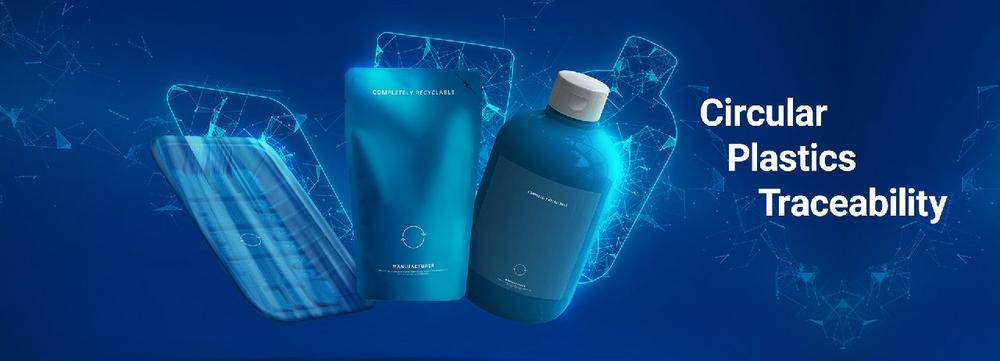
New GS1 Germany guideline „Circular Plastics Traceability“ drives standardized exchange of packaging data
GS1 Germany, known for standards and solutions around barcodes, has published the new guideline "Circular Plastics Traceability", which offers all stakeholders in the plastics value chain a uniform framework to model corresponding cross-company processes and exchange data. GS1 standards and solutions form the basis for numerous global identification and information processes. The best-known example is the barcodes used in global trade, which are scanned more than six billion times a day.
R-Cycle was involved in the development of "Circular Plastics Traceability" alongside other partners and, as a software solutions provider, offers a turnkey software-as-a-service solution for the application of digital product passports in accordance with the new GS1 Germany guideline. The underlying technology is the cross-industry and internationally established GS1 EPCIS interface (Electronic Product Code Information Services). EPCIS is GS1’s core standard for improving transparency in companies or value networks. Put simply, it provides a common language for capturing and exchanging what are known as EPCIS events, which provide companies with information about the what, when, where, why and how of objects that pass through business processes. This information is transmitted and enriched throughout the packaging lifecycle, simplifying data management and offering enormous potential for the manufacturing process and recycling.
The plastics industry – especially in the packaging sector – is confronted with ever increasing industrial and legal information and reporting requirements. Recyclability assessments, EPR schemes or plastic tax calculations are just a few examples. With R-Cycle, the otherwise time-consuming and costly generation of the relevant data can be done at the push of a button. Dr. Benedikt Brenken, Director R-Cycle, explains: "To date, more than 45 leading global industrial companies and organizations already rely on R-Cycle as a solution for the digital product passport. The GS1 ‚Circular Plastics Traceability‘ guideline now gives our customers additional planning security to use an open, standards-compliant and future-proof solution with R-Cycle."
In addition to providing information efficiently in the manufacturing process, digital product passports also enable better recycling to recover high-quality recyclates. Using the information stored in the DPP, waste sorting facilities can precisely categorize recyclable packaging and form recycling-friendly, single-sort fractions. DPPs can be accessed via appropriate marking (e.g., digital watermarks or QR codes) on the packaging. "To support high-quality recycling and a sustainable raw material cycle of plastic packaging, efforts are required from all stakeholders involved. Therefore, we are very pleased to drive the transformation towards a sustainable circular economy with the ‚Circular Plastics Traceability‘ guideline," explains Sarah Grede, Senior Manager Sustainability at GS1 Germany.
More information:
www.r-cycle.org
www.linkedin.com/…
www.twitter.com/RCycle5
www.gs1-germany.de/…
ProData GmbH
Spicher Straße 46
53844 Troisdorf (Germany)
Telefon: +49 (2241) 481-854
https://www.r-cycle.org/
Marketing & Communications
Telefon: +49 (2241) 481-523
E-Mail: michael.ziegler@r-cycle.org
![]()





